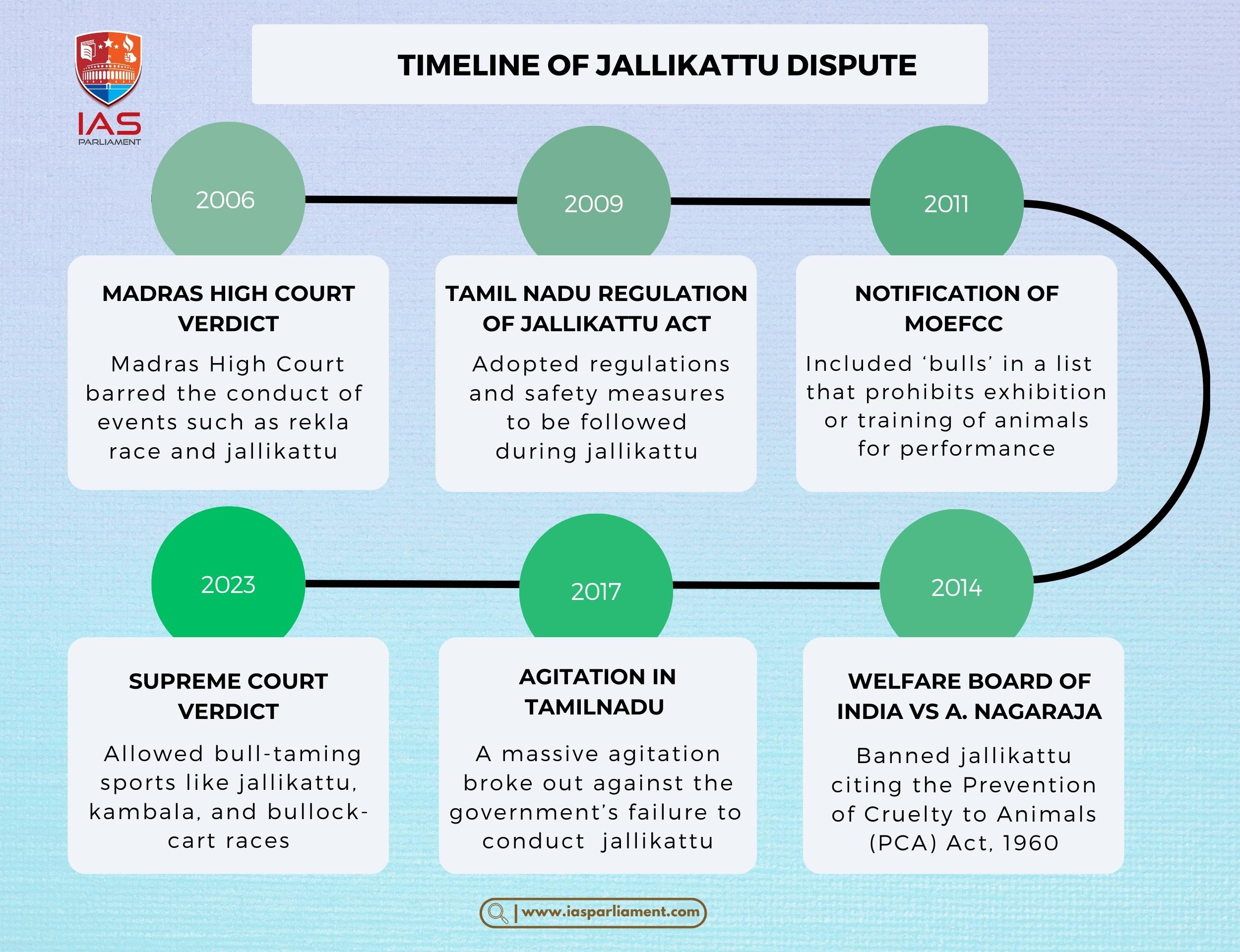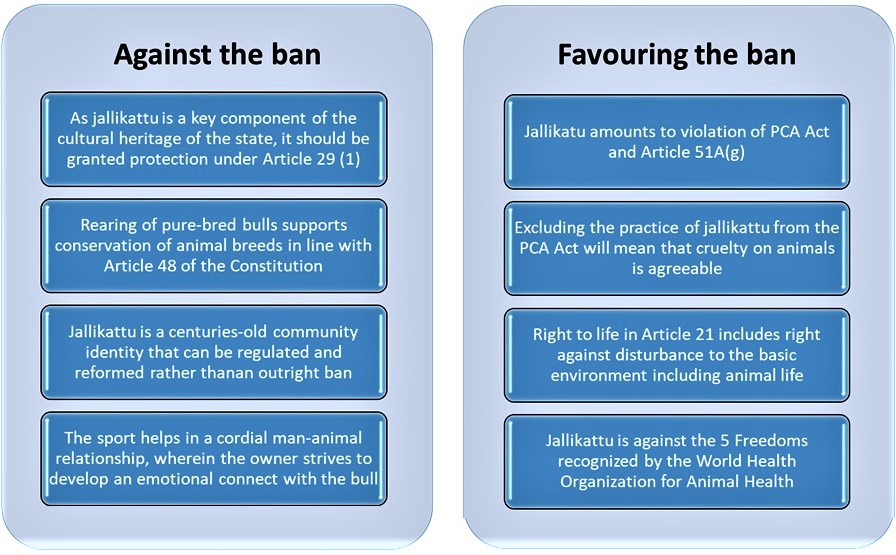The Supreme Court upheld the amendments made by the legislatures of Tamil Nadu, Maharashtra, and Karnataka to The Prevention of Cruelty to Animals (PCA) Act, allowing bull-taming sports and bullock-cart races.
|
Sports involving Animals |
|
|
|
The subject of preventing animal cruelty falls in the Concurrent list of the Seventh Schedule to the Constitution.

SC judgement – In the landmark Welfare Board of India vs A. Nagaraja (2014), the SC imposed a ban on jallikattu and similar sports involving animals citing the Prevention of Cruelty to Animals (PCA) Act, 1960.
Article 29 (1) states that “any section of citizens residing in the territory of India or any part thereof having a distinct language, script or culture of its own shall have the right to conserve the same.”
Article 48 of the Constitution urges the state to endeavor to organize agriculture and animal husbandry on modern and scientific lines.
Art 51A(g)) imposes a duty on citizens to protect and improve the natural environment and to have compassion for living creatures.

What is the recent Supreme Court judgement about?
Quick Facts
Animal Welfare Board of India (AWBI)
References